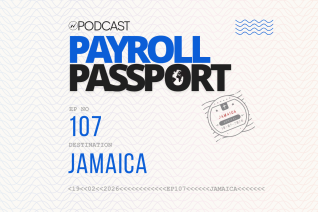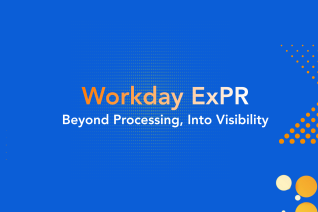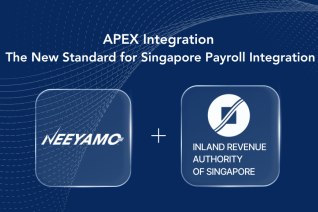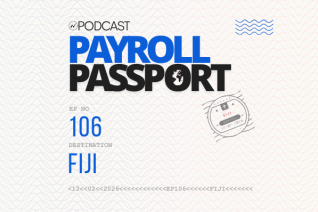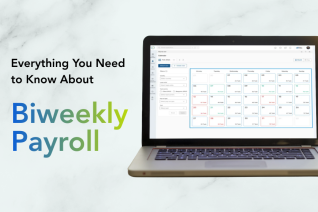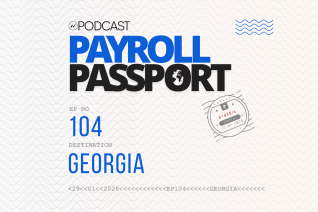Navigating the complexities of Payroll in the UK

When it comes to global payroll, few jurisdictions are as layered and regulated as the United Kingdom. Navigating the UK payroll landscape means understanding various technical terms and strict statutory requirements, the most important being FPS (Full Payment Submission) and EPS (Employer Payment Summary).
FPS & EPS are integral components of Real Time Information (RTI), a framework introduced by HMRC (His Majesty’s Revenue and Customs) to modernize and streamline the way payroll data is reported and regulated.
Accurate payroll calculation for each employee starts with proper data. A payroll software needs to ensure it can fetch the proper Tax Codes and Student Loan information, and keep its database updated in real time.
Understanding the UK’s Real Time Information (RTI) System
First, a bit of context.
The RTI framework was launched by HMRC to improve the accuracy and timeliness of payroll reporting. Prior to RTI, employers submitted year-end returns summarizing payroll activity. Today, under RTI, employers are required to report payroll data every time they pay employees, a shift that brings greater transparency, but also increased responsibility.
This system relies heavily on FPS and EPS filings to keep HMRC informed and ensure both employer and employee records are up to date.
ALSO READ | Country Spotlight: Payroll in the United Kingdom
What is FPS (Full Payment Submission)?
The Full Payment Submission (FPS) is a real-time report submitted by employers to HMRC on or before the day employees are paid. It's the backbone of the UK payroll process.
Each FPS includes:
- Employee earnings
- Income Tax and National Insurance contributions
- Student loan and pension deductions
- Statutory payments (e.g., maternity/paternity pay)
- Start or leave dates of employees.
- Tax code changes, if any
In short, the FPS communicates everything HMRC needs to know about your payroll run for that period, before the money even hits the employees' accounts.
Why it's important:
Timely and accurate FPS filings are non-negotiable. Failing to submit on time can trigger penalties, interest, or HMRC inquiries. Even small data discrepancies can result in incorrect tax codes or benefit allocations for employees.
What is an EPS (Employer Payment Summary)?
While FPS is submitted with every pay run, the Employer Payment Summary (EPS) comes into play when you need to report adjustments or additional information that wasn’t captured in the FPS.
An EPS is typically used to:
- Reclaim statutory payments (such as Statutory Maternity Pay)
- Declare Employment Allowance claims.
- Report that no employees were paid in a tax month.
- Provide Apprenticeship Levy details.
- Adjust the amount you owe HMRC if it’s less than what the FPS shows.
Why it's important:
EPS ensures that your monthly and annual liabilities are accurately reflected, especially when you're entitled to tax reliefs or have special situations like nil payments.
The Complexity Behind UK Payroll Compliance
UK payroll might look straightforward at a glance, but behind the scenes, it’s a complex web of statutory requirements, frequent policy updates, and real-time data handling.
Here’s what makes UK payroll particularly challenging:
- Real-Time Filing Requirements: Every FPS must be submitted on or before payday. There’s zero margin for delay.
- Data Accuracy: HMRC systems are interconnected. Any error in FPS or EPS filings may affect employee tax codes, benefits, or student loan repayments.
- Dynamic Compliance Rules: Thresholds for National Insurance, tax bands, and minimum wage are frequently updated. Employers must stay on top of changes, failure to comply can be costly.
- Additional Year-End Responsibilities: Employers must still handle annual forms like P60s and P11Ds, adding more layers to the process.
- Multi-layered Deductions: Payroll calculations need to account for pensions auto-enrolment, attachment of earnings orders, and voluntary deductions.
Add remote workforces, hybrid contracts, and cross-border operations to the mix, and payroll quickly becomes a high-stakes challenge.
ALSO READ | United Kingdom: A Guideline to Payroll and Employer of Record
Where Neeyamo Comes In
NEEYAMO PAYROLL has a well-rounded functionality that ensures long-term compliance. Leveraging the use of HMRC’s Data Provisioning Service(DPS), our platform is able to consume accurate tax codes for each employee at the start of a tax year (P9), as well as any updates to the tax codes during the tax year (P6).
Up-to-date information of any employee regarding Student Loan (SL1) or the Post Graduate Loan (PGL1) is fetched automatically in our software to maintain correct deduction from the employees’ payroll.
Additionally, our software is able to automatically notify users to stop the deduction of a Student Loan (SL2) or a Post Graduate loan (PGL2), thus ensuring proper stoppage of these deductions.
On top of this, our software is automated to fetch all types of crucial notifications from HMRC, such as annual reminders, generic, and RTI-specific notifications.
For organizations operating in the UK, maintaining RTI-compliant systems is no longer a best practice. It’s a legal and operational necessity. Businesses must ensure that their payroll solutions not only meet current requirements but are also agile enough to adapt to future legislative updates, policy shifts, and compliance mandates.
As the future of payroll continues to align more closely with automation and real-time compliance, Neeyamo is backed by a robust in-house calculation engine. Our platform ensures accurate payroll processing, seamless FPS generation, and intelligent EPS triggering, helping businesses fully comply with UK regulations while minimizing manual intervention.
By partnering with Neeyamo, businesses gain more than just a payroll provider, they gain a strategic compliance partner committed to delivering efficiency, accuracy, and peace of mind across every UK pay cycle.
Reach out to us at irene.jones@neeyamo.com and unlock a smarter way to process payroll in the UK, powered by Neeyamo Payroll.
Latest Resources
Stay informed with latest updates
If you're curious and have a thirst for knowledge pertaining to the HR, payroll, and EOR universe, don't miss out on subscribing to our resources.



